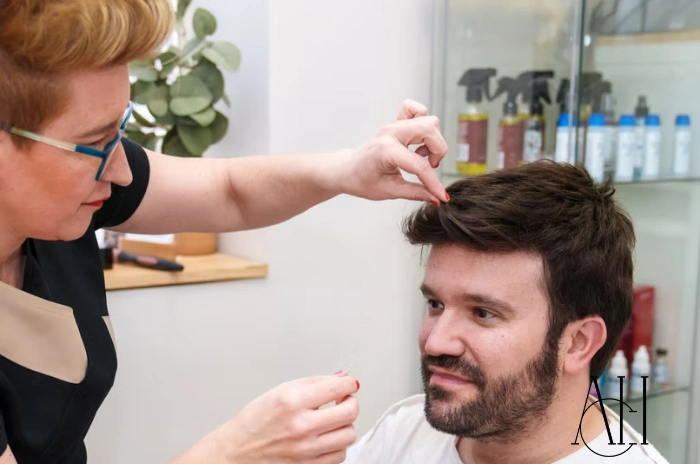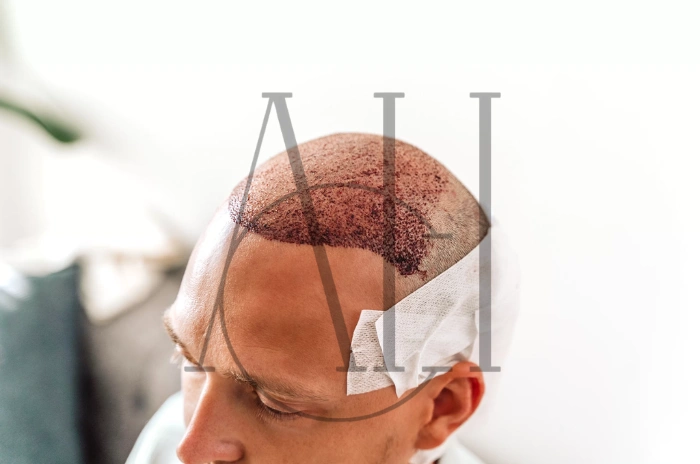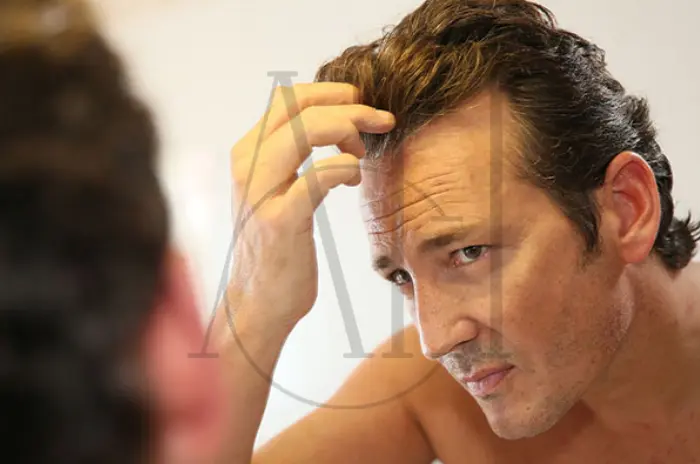Table of Contents
Toggle
Regaining Confidence and Self-Esteem
A hair transplant can significantly change how individuals perceive themselves. Restoring a fuller head of hair often helps people feel more attractive and confident in both their personal and professional lives.
Boost in Self-Image
Hair transplants can help individuals feel younger and more attractive. Many patients report looking in the mirror with pride after their new hair begins to grow. The boost in appearance often translates into feeling more capable and outgoing.
Feeling Comfortable in Public Again
Many people report a new sense of ease and freedom in social situations. They no longer feel the need to wear hats or avoid eye contact due to hair loss insecurity.
Enhancing Personal and Social Relationships
Hair restoration can have a profound impact on relationships. When people feel better about their appearance, they tend to open up more and engage with others more confidently.
Strengthened Romantic Confidence
Improved appearance can lead to better dating experiences and relationships. Hair transplants help people feel more attractive and confident when meeting new people.
Increased Social Engagement
Hair restoration often encourages individuals to become more socially active. They attend events, engage in group settings, and reconnect with friends without embarrassment.
Professional Opportunities and Career Growth
Hair restoration may boost how you’re perceived at work. In careers where first impressions matter, looking younger and more vibrant can make a real difference.
More Competitive Appearance at Work
A fuller head of hair may improve first impressions and professional presence. In appearance-driven industries, this can make a noticeable difference.
Confidence in Interviews and Presentations
People often report feeling more self-assured during high-pressure situations. This added confidence can lead to promotions, new opportunities, or better performance.
Albania Hair Clinic – Trapianto Capelli in Albania (@albaniahairclinic)’in paylaştığı bir gönderi
Emotional Well-Being and Mental Health Improvements
The psychological effects of a hair transplant go beyond appearance. Patients frequently experience a reduction in stress, anxiety, and even depressive symptoms.
Reduced Anxiety and Stress
Feeling good about your appearance can lower stress levels. Individuals no longer obsess over hair loss and focus more on personal development.
Improved Mood and Outlook
Patients often feel more optimistic after their procedures. They wake up each day with renewed energy and a positive mindset.
Transformative Patient Testimonials
Hearing real-life stories of successful hair transplants can inspire others. These testimonials help people understand what’s possible and set realistic expectations.
Real-Life Stories
People often share personal journeys of regaining control over their appearance. These stories inspire others who are hesitant about hair transplant surgery.
Before-and-After Reflections
Patients highlight the emotional and lifestyle impact of their transformations. From low self-worth to a sense of empowerment, the change is often life-altering.

The Journey: From Decision to Recovery
Deciding to undergo a hair transplant is a personal journey. It includes research, preparation, and a post-op healing process that varies from person to person.
Research and Choosing a Clinic
Selecting the right clinic plays a crucial role in successful outcomes. Patients often compare reviews, certifications, and surgeon experience.
The Recovery Timeline
Recovery is often shorter than expected, with most returning to work quickly. Mild redness and scabbing are temporary and easily managed.
Long-Term Satisfaction and Maintenance
Hair transplants can offer lasting satisfaction when supported with proper care. The results often encourage continued personal grooming and self-care.
Sustainable Results
Many patients enjoy results that last for years with minimal upkeep. Transplanted hair continues to grow naturally and requires regular grooming.
Scalp Care and Supplements
Ongoing care helps preserve the results and prevent future hair loss. Scalp massage, vitamins, and gentle products are often part of the routine.
Addressing Common Concerns and Misconceptions
It’s common to have fears or doubts about hair transplants. Educating yourself about the reality of the procedure helps manage expectations.
Is It Painful?
Most modern hair transplant techniques are virtually painless. Local anesthesia ensures comfort throughout the procedure.
Will It Look Natural?
With skilled surgeons, the results often blend seamlessly with existing hair. Proper angling and density matching are critical.

Is a Hair Transplant Right for You?
Not everyone is a candidate, but many people are surprised to learn that they qualify. A medical evaluation is the first step.
Candidacy Factors
A consultation can help determine if you’re an ideal candidate based on hair type and health. Donor area availability also plays a role.
Alternatives to Consider
Explore options like PRP, SMP, and medications before committing to surgery. These may be better suited for early-stage hair loss.
Daily Life Improvements Post-Transplant
Everyday routines often become easier after a transplant. Patients report newfound ease with grooming, social interaction, and overall comfort.
Faster Morning Routine
No more camouflaging bald spots or struggling with styling. A natural look saves time and effort.
Confidence in Everyday Tasks
Even small activities, like shopping or meeting friends, feel easier. Self-consciousness no longer interferes with daily life.
The Psychological Journey: From Insecurity to Empowerment
Hair loss can deeply affect one’s self-image. Restoring hair often brings back not just appearance, but a sense of control and identity.
Accepting Hair Loss
Understanding the emotional toll of hair loss is part of the journey. Many patients describe years of low self-esteem before deciding on surgery.
Rediscovering Personal Identity
Hair restoration often helps individuals feel like themselves again. It reconnects them with the image they remember and cherish.
Sharing the Experience: Inspiring Others
Hair transplant recipients often become advocates. By sharing their stories, they help others make informed decisions.
Blogging and Vlogging About Results
Many people choose to share their journey online. This helps others make informed decisions and prepares them for what to expect.
Encouraging Hair Loss Conversations
Openly discussing hair loss helps normalize it and reduces stigma. Support groups and social media communities are great outlets.

Boosting Self-Care Habits
Hair restoration often leads to broader lifestyle changes. Patients frequently adopt new health and grooming routines.
Motivation to Stay Healthy
Post-transplant, many individuals adopt better skincare and dietary habits. They want to protect and enhance their new look.
Investing in Appearance
People often start exploring fashion, fitness, or grooming with newfound interest. The hair transplant becomes a catalyst for broader self-improvement.
Impact on Travel and Lifestyle Choices
Many patients say they feel more free and spontaneous after their procedure. Vacations, special events, and photo ops become enjoyable again.
More Confidence in Public Spaces
Beach holidays, weddings, and photos no longer cause anxiety. People freely enjoy their experiences without worrying about how they look.
Willingness to Try New Things
Hair restoration empowers individuals to try activities they once avoided—like swimming, dating apps, or reunions.
Improved Communication and Eye Contact
Improved self-confidence after a transplant can impact the way people connect with others. It often leads to stronger relationships and clearer communication.
Less Avoidance Behavior
Patients stop hiding under hats or avoiding mirrors. They participate more fully in conversations and social settings.
Better Interpersonal Connections
Making eye contact and speaking openly becomes easier, improving both personal and professional relationships.
Frequently Asked Questions
Can a hair transplant really change your life?
Yes, many patients report increased self-confidence, improved relationships, and career growth after undergoing a hair transplant.
How long does it take to see results from a hair transplant?
Most people see initial growth within 3–4 months, with full results typically visible after 9–12 months.
Is the emotional impact of hair loss significant?
Hair loss often leads to anxiety, depression, and low self-esteem. Restoring hair can dramatically improve emotional well-being.
Will people notice if I had a hair transplant?
Modern techniques ensure natural results, so most people won’t notice unless told. It blends seamlessly with existing hair.
Does a hair transplant improve professional confidence?
Absolutely. Many patients feel more self-assured in interviews, presentations, and daily work interactions after their procedure.
Are there non-surgical ways to boost confidence before a transplant?
Yes, options like PRP, scalp micropigmentation, and hair systems offer confidence boosts while considering or awaiting surgery.



